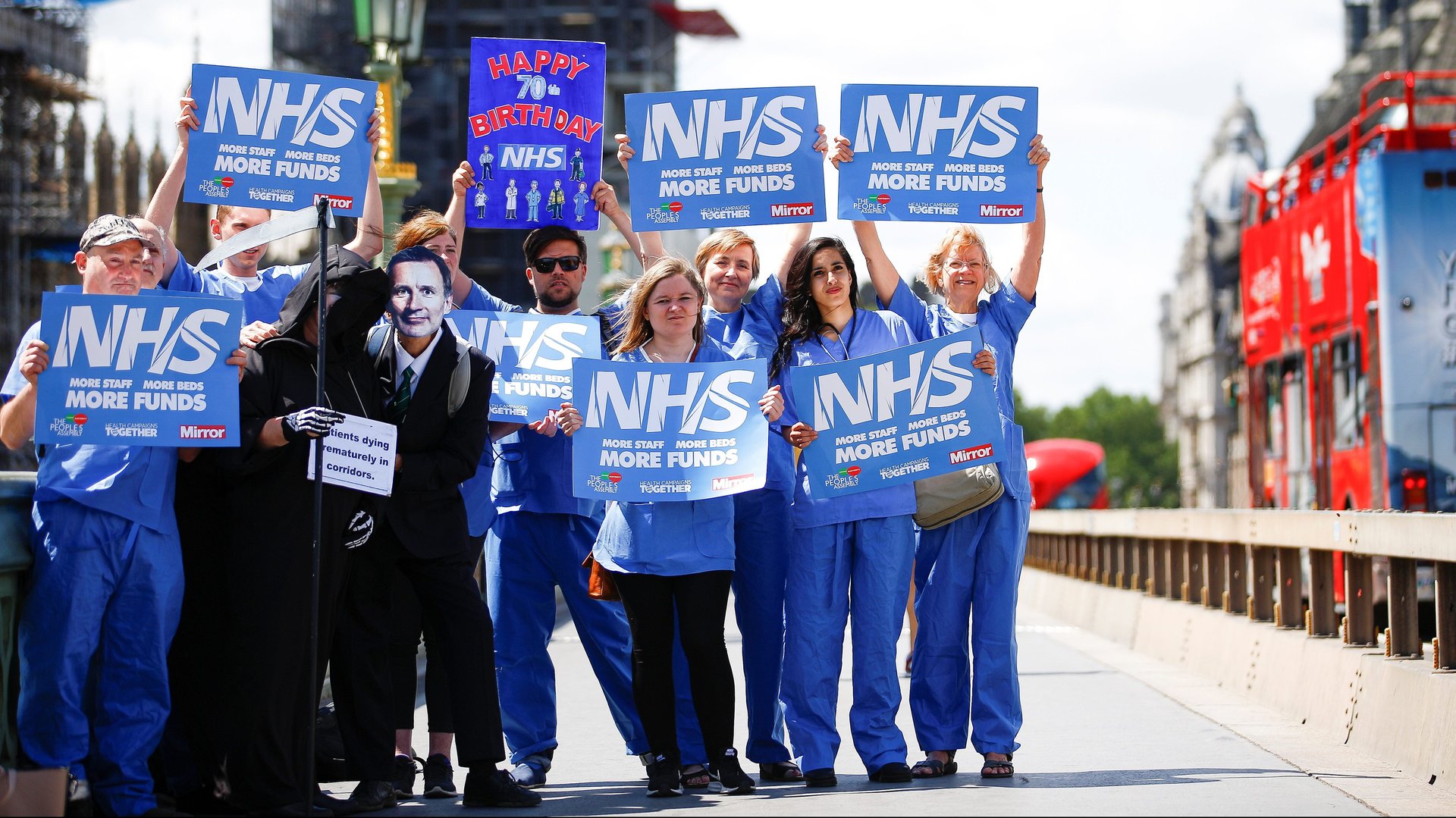Britain’s NHS is failing patients more than ever: Will it matter to voters?
Britain’s National Health Service, which provides free health care to its citizens and primary and emergency care to all, is a cherished institution. In a 2018 poll, 87% of respondents said they were “very” or “fairly” proud of the NHS, which ranked second only to the fire brigade in terms of pride.


Britain’s National Health Service, which provides free health care to its citizens and primary and emergency care to all, is a cherished institution. In a 2018 poll, 87% of respondents said they were “very” or “fairly” proud of the NHS, which ranked second only to the fire brigade in terms of pride.
But statistics released today by NHS England show that it is failing to meet the needs of many patients, posting its worst performance on waiting times since as far back as the data goes. Patients are waiting longer in emergency rooms, waiting longer for treatments like hip replacements, cataract removals and hernia repairs, and longer for cancer treatment.
In 2010, the government relaxed its target for waiting times at emergency rooms (known as A&E), aiming for 95% of people to be treated or admitted within four hours. In October, only 83.6% of people were seen within four hours of arriving at emergency rooms in England.
What’s more, the government aims for 85% of patients referred by their general practitioner for cancer treatment to be seen by a specialist within two months. In September, only 76.9% of people referred for cancer treatment received it within two months.
Chaand Nagpaul, council chair of the British Medical Association (BMA), which represents doctors, called the situation a “catastrophe.” In a statement, he said, “These shocking figures show precisely what the BMA has feared—that the NHS is on a collision course for its worst winter yet.”
Not long ago, the NHS vied for the top spot in the ranking of issues British voters care about most. Then came Brexit, and everyone’s attention shifted. The NHS remains voters’ second-most important issue, according to recent surveys, ahead of the economy, immigration, and other issues.
With a general election in less than a month, politicians did not miss a beat trying to capitalize on the grim news about the NHS. The unusual winter election—the first in December since 1923—will be held when hospitals are under particular seasonal strain, potentially making the health system even more of a factor in voters’ minds.
“The Conservatives have ushered in the worst NHS crisis on record,” said Jonathan Ashworth, Labour’s shadow health secretary. “Under Boris Johnson the NHS is in crisis and we’re heading for a winter of abject misery for patients.”
The Conservatives have been in power since 2010, and thus in charge of NHS policy during the downturn in its performance. Nonetheless, the party argues things would be even worse with a Labour government under party leader Jeremy Corbyn.
“These figures show just how important it is that we stop Jeremy Corbyn,” said health secretary Matt Hancock. “We are giving the biggest cash boost ever to our NHS, but Corbyn’s chaotic policies will put that at risk.” The party’s proposed spending boost, when adjusted for inflation, doesn’t match many previous governments’ investments, although it is an increase on the austerity-minded restraint of David Cameron’s administration.
The Conservatives’ oft-repeated campaign slogan of “Get Brexit Done” and a tough new commitment to cut immigration emphasize other issues important to voters, where the party believes it has an advantage over its rivals. Labour’s better-than-expected performance in the 2017 general election was down in part to mobilizing voters who said the NHS was their first priority.
The UK faces a major shortage of medical professionals. This is likely to be exacerbated by Brexit. Around 13% of the NHS workforce is not British, according to a parliamentary report published this year, and the biggest group of foreign NHS workers come from the rest of the EU, including nearly 10% of doctors.